Common Ground Project
Amy Tacey, Common Ground ProjectAbout an hour-and-a-half from Melbourne, and just a short drive south of Geelong, Common Ground Project sits on four acres of rural farmland in Freshwater Creek. A regenerative farm and social enterprise, the mission of the organisation is to empower agency and access for those who need it most in the community in order to cultivate a stronger, fairer and more resilient local food system.
To support their mission, Common Ground Project also provides an inclusive space for growing, knowledge sharing, and ongoing community collaboration through farm volunteer days and an array of community programs, in collaboration with schools in the area, local councils, like-minded community organisations and experts in food and farming.
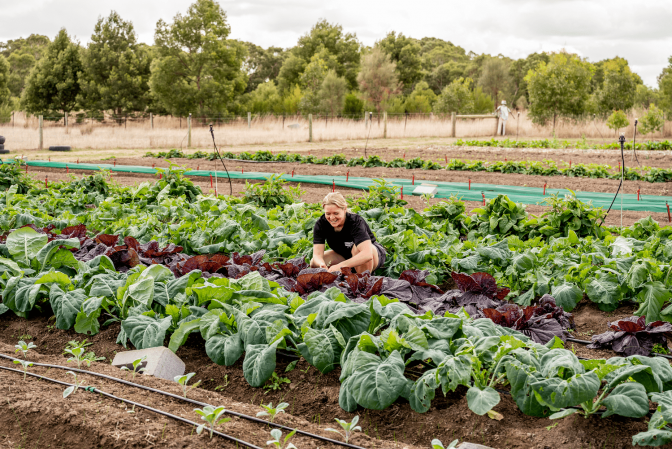
Led by Chief Executive Officer Felicity Jacob and Farm Manager Clarrie Smith, the work of the team is grounded in regenerative farming with the recognition of the urgent need for a more resilient food system, particularly for a region spawning with structural barriers to safe food, meaningful employment and good quality affordable housing.
This led the not-for-profit to join as a core partner of Moving Feast, a network of for-purpose social enterprises and individual and group collaborators working as catalysts for a connected, fair and regenerative Victorian food system.
Everything starts in the soil, and we are gradually increasing the health, biodiversity and productivity of the small regenerative farm as a means of underpinning the rest of the Project’s mission and operations.
We would struggle to do anything we do without the farm. It is something we say often over a ‘farm lunch’ - either a delicious meal cooked by the Staying Grounded program, or vegetables in their phase of life before being chicken food, had with olive oil and bread.
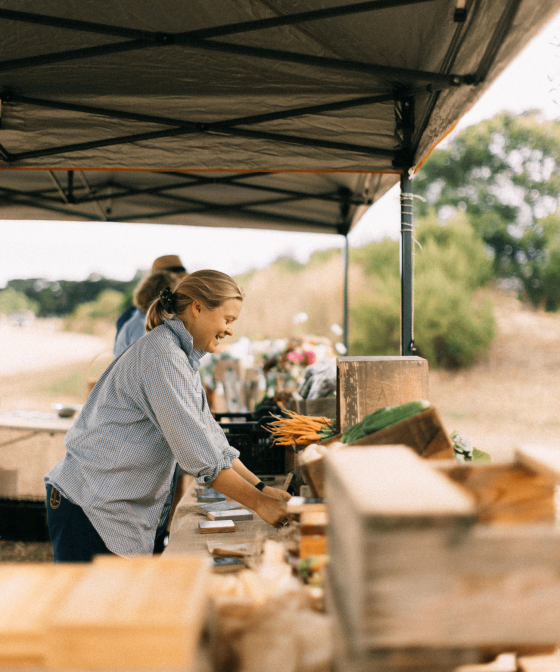
Common Ground Project is in phase one (year 1) of a three year partnership with VicHealth as one of seven Future Healthy Food Hubs across regional Victoria, a major investment for Victoria’s food systems space and one that comes with unique, Hub specific challenges.
The Common Ground Food Hub will provide fair access and connection to regenerative agriculture through produce grown onsite, create a network of the region’s small-scale food producers, and support community empowerment through workshops and greater training and employment pathways for those facing barriers to employment in the region.
Currently the Food Hub is in Pop Up form awaiting permits to build a permanent structure, as well as talking through challenges with food systems organisations like Open Food Network to look at how a ‘Food Hub’ can be both a sustainable viable operation and support food justice components of access, inclusivity and equity.
The right to food and the right to participate (particularly when the Food Hub doesn’t physically exist in a space that is connected by public transport or walking) are challenging concepts other Food Hubs globally have faced.
The Food Hub aims to create demand for produce that is environmentally responsible and locally sourced. The region surrounding Freshwater Creek has opportunities for more small-scale food and farming enterprises to be connected by a common space for distribution and sale in the pursuit of a fairer system.
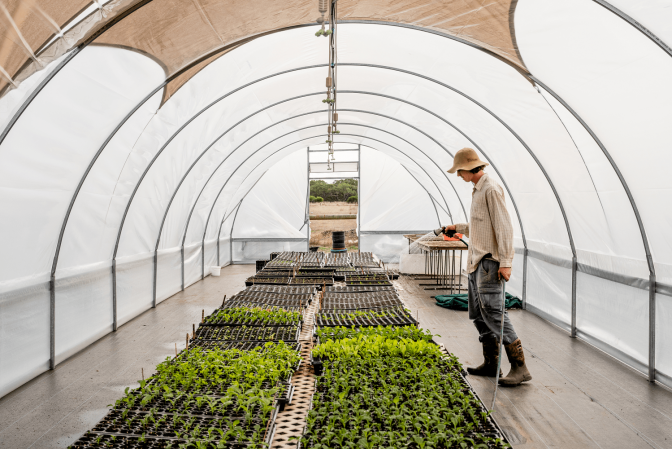
There is currently a lack of small-scale growers in this G21 region, the area established as the wider ring of Greater Geelong. The concentrated growing areas of the Bellarine do well due to their fertile soil, and those in the Otways struggle to keep their produce in the area due to enticing delivery routes to wholesale Melbourne Markets. Surf Coast Shire, and more specifically Freshwater Creek, is generally an arid, flat site that is prone to flooding.
To be able to show the community what produce is being harvested on the same day from the small 4 acre site, whilst standing on the driveway and having chats with locals about their need for a veg box, or someone they know that is doing good work in this field in a suburb in Geelong, is a privilege for the team.
The Food Hub team believe if they can reduce the barrier for farmers to sell their local food, including hobby and backyard farmers, greater demand will be generated by the public all year round, thus supporting the growth of small and micro enterprises in the Surf Coast and Greater Geelong regions.
Onsite support for micro enterprises is a goal for down the track, where a community garden that has been designed by permaculture consultant Kat Lavers, alongside internal team members, would support programmatic operations of the regenerative farm and potentially plot hire by community members at a reduced cost.
Food security for Common Ground Project in time, will really need to consider what is grown in the community garden and who is involved to do so.
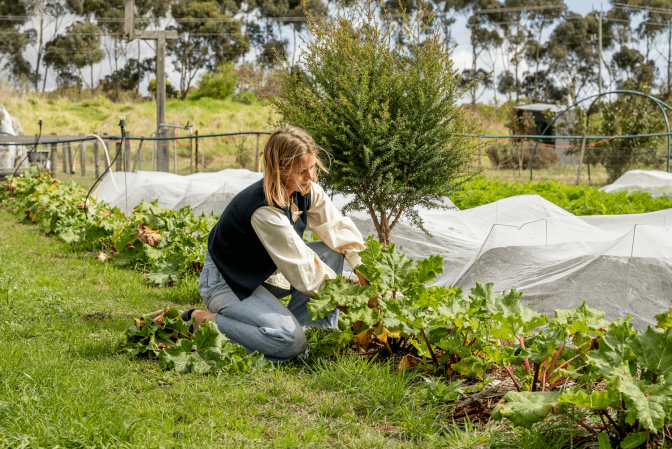
If you are interested in getting involved in Common Ground Project, as a volunteer or partner, please email [email protected]. Stay up to date to book Workshops, Tours, School Programs and attend Pop Ups where you can buy local produce at Common Ground Project, through their Instagram or website.
About the Author: Amy Tacey
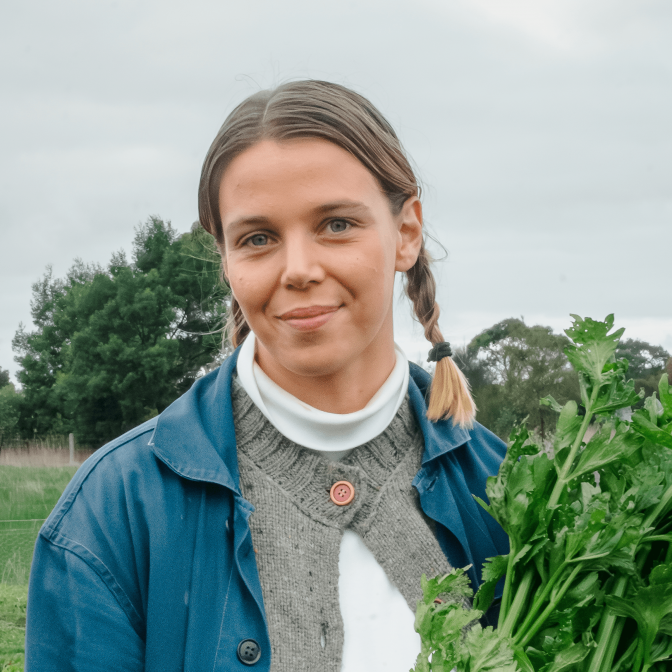
Amy has been passionately thinking about collaborative and tangible contributions to a better food system for the past several years, including studying in this area as well as forming a food justice not-for-profit primarily targeted at youth, Just Food Collective.
Amy loves hosting elaborate dinner parties but also combining that passion with serious effort into re-designing food environments to be more equitable, convivial and supportive.
Contact Amy: [email protected]